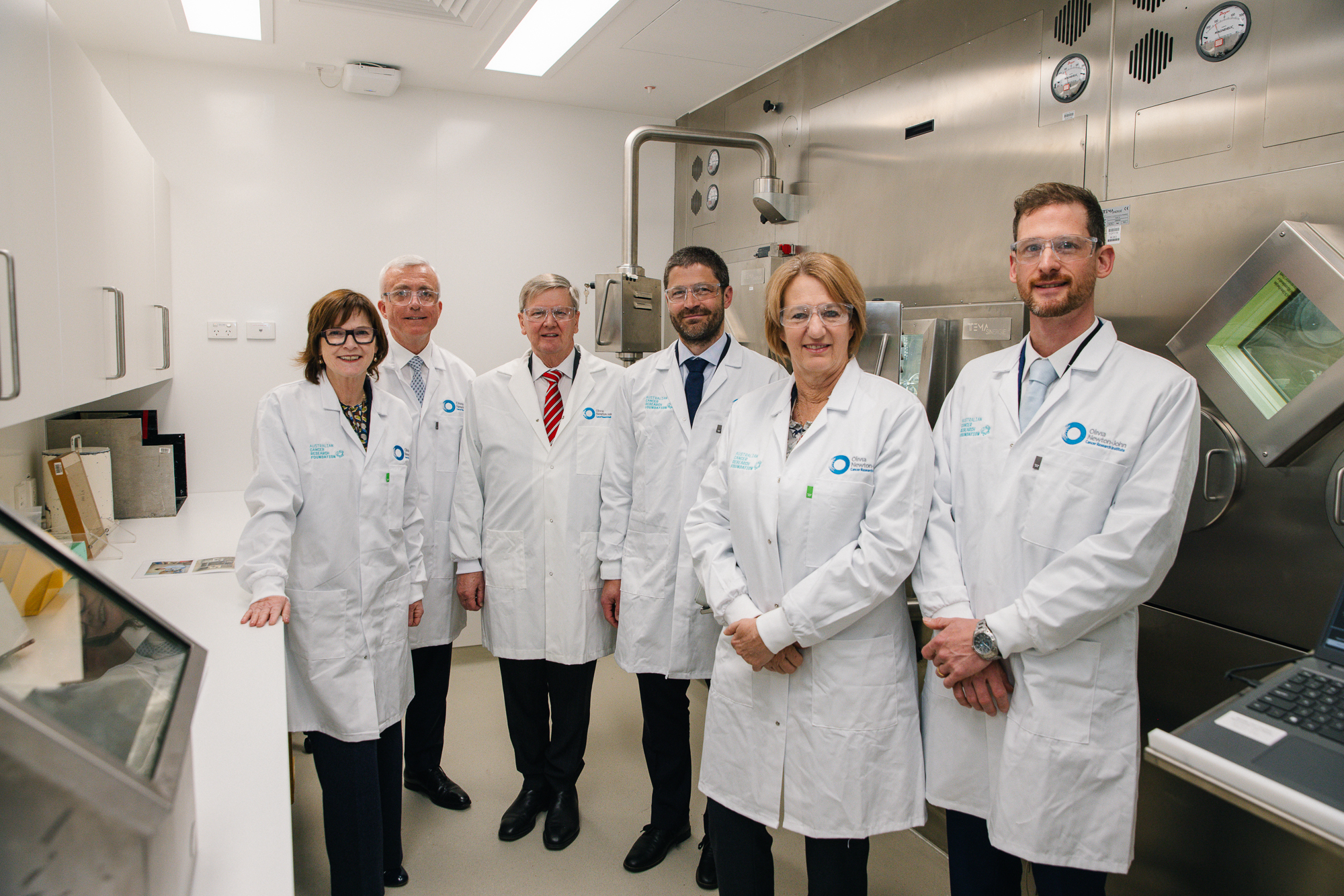
New Australian lab exploring precision cancer treatments opens
23 July 2025: The ACRF Centre of Precision Medicine officially launched today at the Olivia Newton-John Cancer Research Institute (ONJCRI) in Victoria. This groundbreaking Centre was established with a $2.1 million grant from Australian Cancer Research Foundation (ACRF) awarded in 2022.
This cutting-edge Centre will use a ‘theranostic’ approach, combining advanced imaging and targeted treatment with radioisotopes – special radioactive substances that help detect and treat tumours. This innovative strategy will integrate imaging and treatment with novel drugs, aiming to enhance therapeutic responses, exploit new technology for tumour treatment, and expand treatment options.
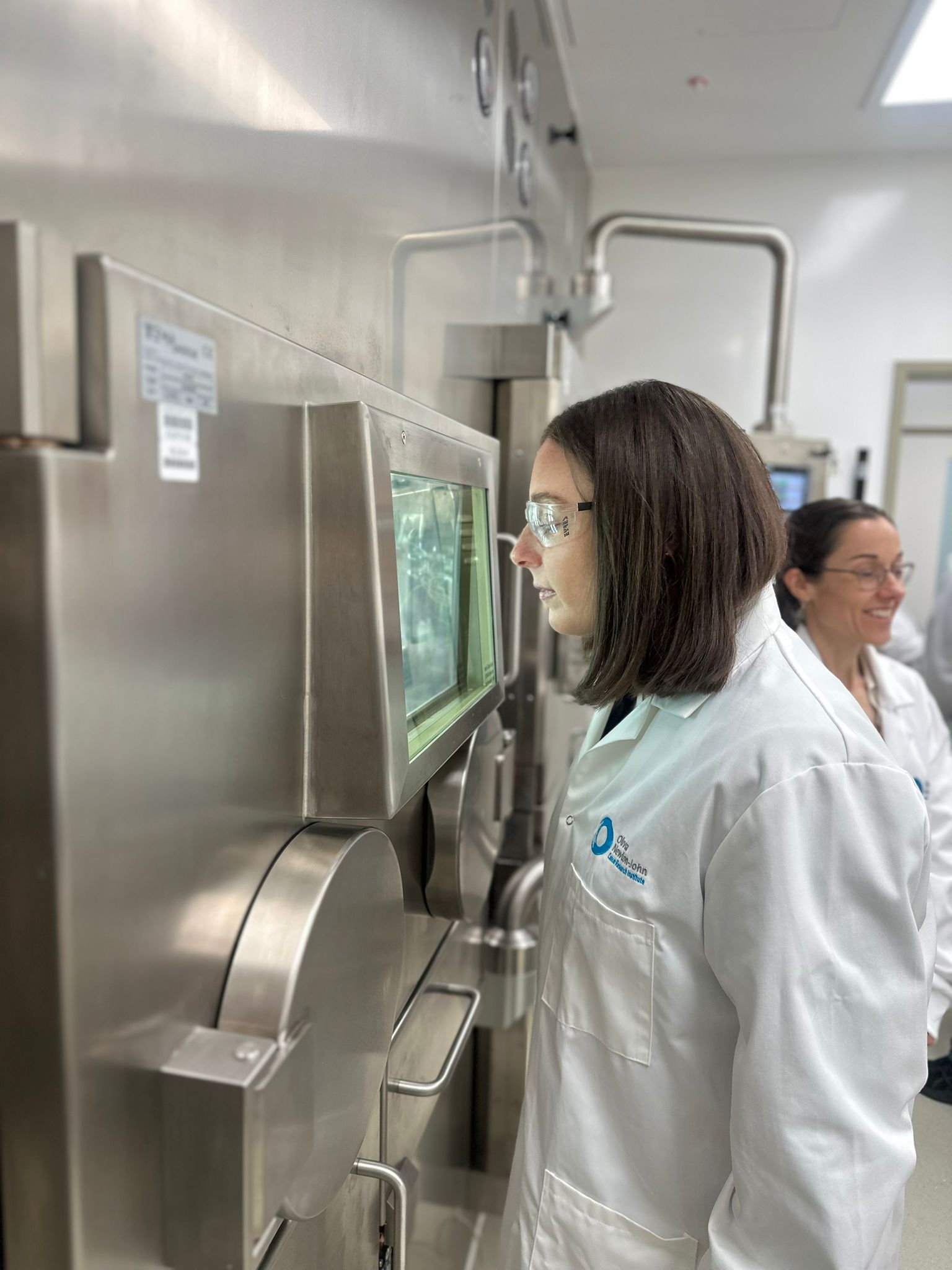
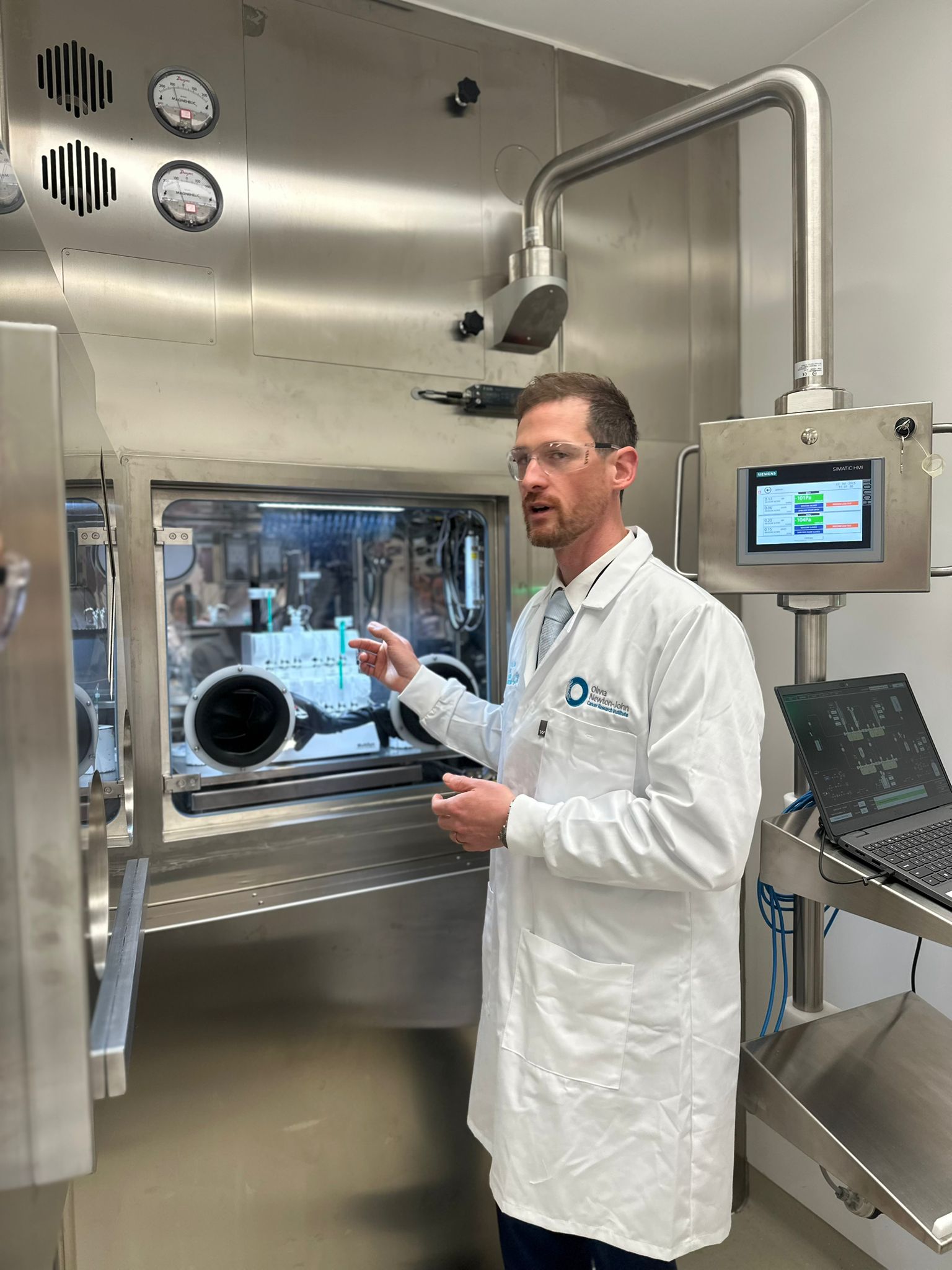
It is hoped new approaches like this can help patients like Chantelle, whose cancer journey began in January 2020, when she was admitted to the emergency department following a seizure. It was later revealed Chantelle had a Grade 2 oligodendroglioma – a type of brain cancer. At the time, her youngest child was only seven weeks old, and her eldest had just turned seven.
“In those early days, the biggest questions weighed heavily on me. How long would I live? How quickly would my cancer progress? How would cancer and treatment impact who I was? They were questions no specialist could clearly answer – and ones I still carry with me,” Chantelle said.
Treatment began soon after. Chantelle underwent nearly 30 rounds of radiotherapy and seven months of chemotherapy. Unfortunately, her body didn’t tolerate the treatment well.
“I was hospitalised several times and continued to experience seizures throughout. It was an incredibly challenging time for both me and my young family.”
Precision oncology can benefit up to 50% of cancer patients by determining the most effective treatment based on their cancer’s profile, rather than a one size fits all approach.
The ACRF Centre of Precision Medicine is housed at ONJCRI. At the heart of the Centre is a cutting-edge radiochemistry lab that will support the development of radiopharmaceuticals for the diagnosis and therapy of cancer, ensuring that patients have access to emerging therapies as they are developed.
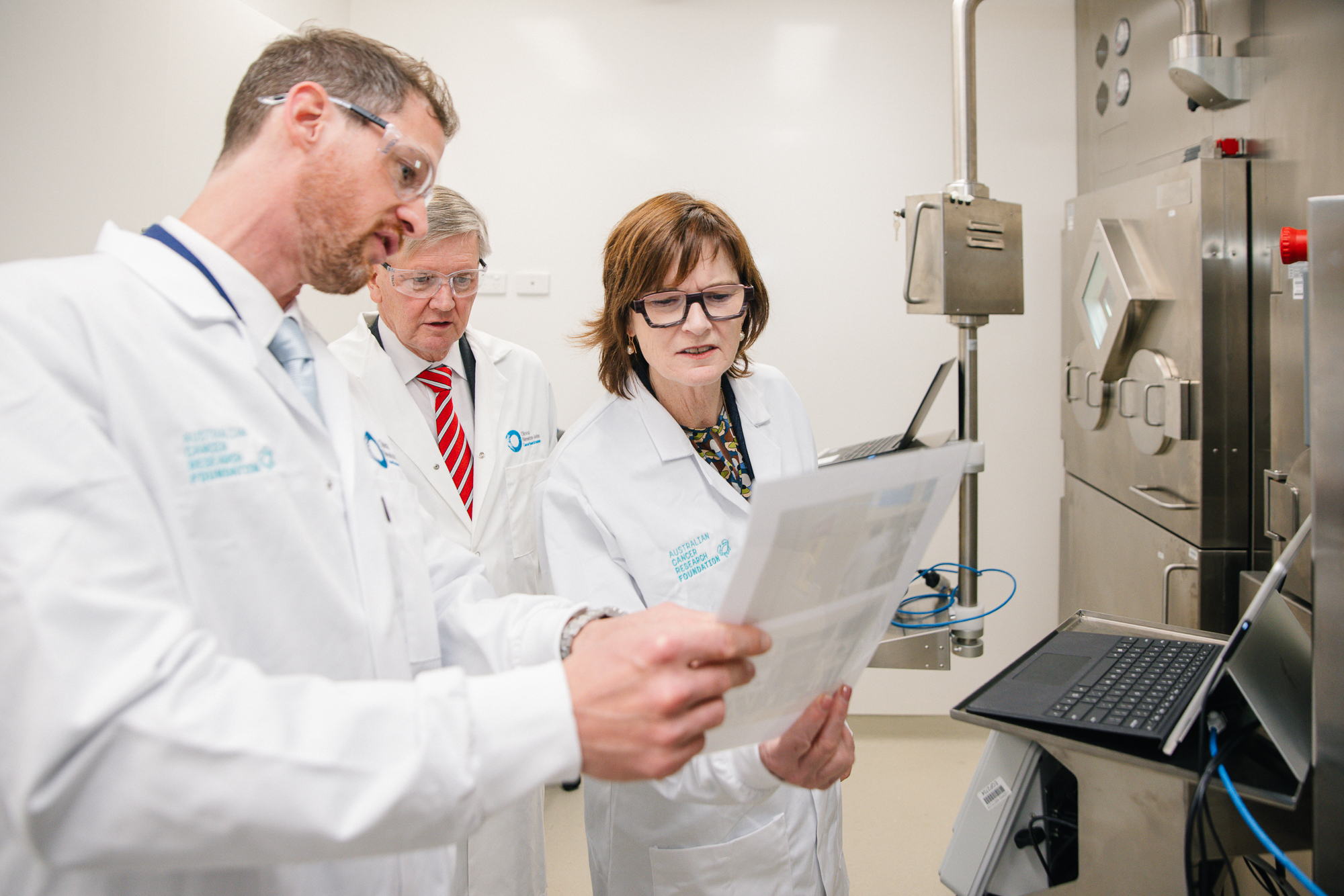
Centre Director, Professor Andrew Scott AM, said “The ACRF Centre for Precision Medicine is a unique and exciting capability for translation of discoveries into the clinic and provides a key technology for theranostics for multi-centre clinical trials across Australia.
It links outstanding researchers in cancer biology, drug development, radiochemistry and molecular imaging of cancer, and will lead to novel therapeutic approaches and clinical trials.”
“ACRF is proud to enable transformative research that will be conducted at the ACRF Centre for Precision Medicine, accelerating translation of discoveries into the clinic to ensure optimal outcomes for cancer patients,” said Kerry Strydom, ACRF CEO.
The Ovarian Cancer Research Foundation has also committed $300,000 to enable the Centre’s cutting-edge approaches to investigate new therapies for hard-to-treat ovarian cancers.
“The ACRF Centre for Precision Medicine gives our researchers, clinicians, and partners the tools to develop and apply highly targeted diagnostics and treatments. It is embedded in a translational research environment, located in a health precinct, and purpose-built to bring scientific innovation closer to clinical care,” said ONJCRI CEO, Professor Marco Herold.
Ovarian Cancer Research Foundation (OCRF) provided collaborative funding for the project, and OCRF CEO, Robin Penty said, “Precision medicine has the potential to transform ovarian cancer treatment because it is not one disease but over thirty different subtypes. The OCRF is pleased to offer adjunct support to the Centre, where state-of-the-art technology will drive innovation to deliver hope to cancer patients with limited treatment options.”
“Living with cancer means facing a lot of unknowns,” Chantelle said. “Medical research helps me turn some of that uncertainty into hope. Even the smallest of breakthroughs may offer new treatment options and the possibility of more time with my family.
“At some stage, my brain tumour is likely to grow again, and I’ll need further treatment. I hold onto hope that new research and clinical trials will lead to alternatives – options that are more effective and gentler than the treatment I went through the first time.
“Cancer research gives people a reason to keep hoping that life will get better. My heart longs for a world without cancer, where no one hears that devastating diagnosis. Until that day, I hope we take big steps to advance cancer treatment. Where therapies are as unique as each individual – so the fight against cancer becomes kinder, more targeted and ultimately, more winnable. So, people have more time with their loved ones.
“I’m genuinely excited about the ACRF Centre for Precision Medicine and what it means for patients. For people like me, who have had limited treatment options, this gives real hope. It means that when my tumour needs more treatment, there may be new therapies available. Treatments designed specifically for me. It feels like I’m getting a glimpse of a brighter future,” Chantelle shared.
Infrastructure used at the ACRF Centre for Precision Medicine has been provided by the National Imaging Facility (NIF) under the National Collaborative Research Infrastructure Strategy (NCRIS).
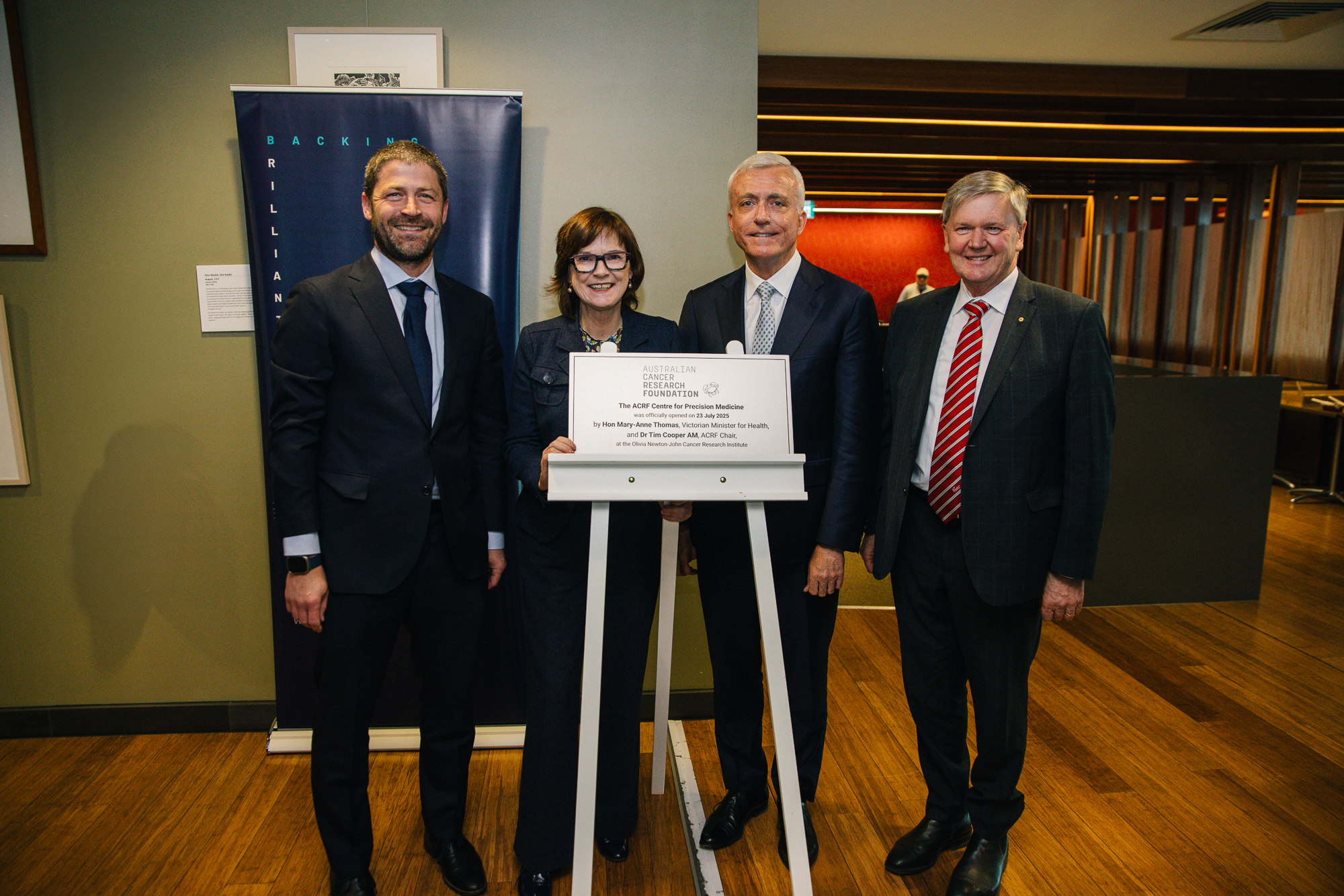
The ACRF Centre for Precision Medicine was officially opened by Hon Mary-Anne Thomas, Victorian Minister for Health, 23 July 2025, hosted by Professor Marco Herold, CEO, Olivia Newton-John Cancer Research Institute and ACRF Chair Dr Tim Cooper AM.
-2.png)
.png)
.png)